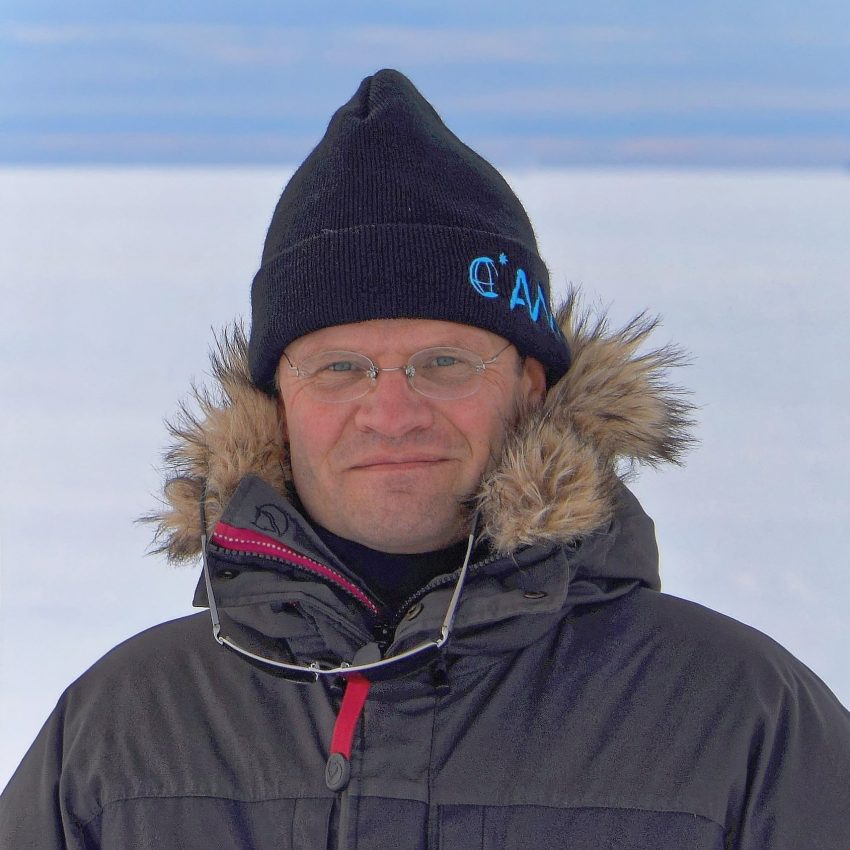Frozen at the North Pole – Expedition to the epicentre of climate change Alumni Talk with Markus Rex, expedition leader of the MOSAiC expedition
It was the largest Arctic expedition of all time. The research vessel “Polarstern” spent a year drifting frozen in the Arctic Ocean on a year-long expedition to investigate the effects of climate change in the Arctic. Climate and polar researcher Professor Markus Rex, leader of the spectacular MOSAiC expedition, talks about his experiences on the mission in the Alumni Talk.

Professor Markus Rex reports on the largest Arctic expedition of all time as part of the Alumni Talk. Photo credit: AWI
In October 2019, the research icebreaker Polarstern froze firmly in the Arctic sea ice in order to drift through the central Arctic for an entire year using only the force of natural ice drift. Expedition leader Markus Rex reports on the dramatic climate change in the Arctic, the rapid retreat of the Arctic ice and gives an insight into the progress and first results of this unique expedition. Supported by six other ships, aircraft and helicopters, this was the first time a modern research icebreaker reached the immediate vicinity of the North Pole in winter. Following in the footsteps of Fridtjof Nansen’s historic expedition of 1893-1896, the scientists studied the climate system of the central Arctic more closely than ever before, despite extreme cold, Arctic storms, an ever-changing icy landscape and the unprecedented challenges of the coronavirus pandemic.
The Alumni Talk takes place
on Tuesday, 25 June, 18:30,
in lecture hall 19.1, Historic Main Building, Pockelsstraße 4, 38106 Braunschweig.
Admission is free.
The Alumni Talk is a series organised by the Alumni and Career Services and the Executive Board of TU Braunschweig.
About the person
Markus Rex was born in Braunschweig and is an alumnus of Technische Universität Brauschweig. As a full professor at the University of Potsdam, he is head of atmospheric research at the Alfred Wegener Institute, Helmholtz Centre for Polar and Marine Research. He studied Physics, Geophysics and Meteorology at TU Braunschweig and the Georg-August-University of Göttingen and graduated in Physics in 1993. After completing his doctorate at the Freie Universität Berlin in 1997, he worked at the Jet Propulsion Laboratory (JPL) of the National Aeronautics and Space Administration (NASA) and the California Institute of Technology, at the University of Canterbury in Christchurch, New Zealand, and at the Alfred Wegener Institute in Potsdam. He habilitated at the University of Bremen in 2013 and has received numerous awards for his work in polar climate research. Rex studies the impact of climate-physical processes in the polar regions in the context of Earth system research, collects climate data in the polar regions, which are strongly affected by climate change, and uses this data to calculate global climate models that allow predictions of global climate change.
